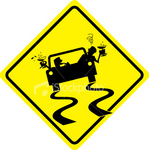 On July 12, the Supreme Judicial Court handed down a disappointing decision in the much-anticipated case of Lev v. Beverly Enterprises-Massachusetts, Inc., declining to hold an employer liable after its employee became intoxicated at an after-work meeting held at a restaurant and struck a pedestrian on his way home.
On July 12, the Supreme Judicial Court handed down a disappointing decision in the much-anticipated case of Lev v. Beverly Enterprises-Massachusetts, Inc., declining to hold an employer liable after its employee became intoxicated at an after-work meeting held at a restaurant and struck a pedestrian on his way home.
In a separate criminal case, the employee was found guilty of operating under the influence.
The facts of the case are simple and many of the minor details played an important part in the opinion’s rationale. On March 14, 2004, a nursing home dietician and his supervisor met at a Chinese restaurant after work to discuss patients’ menus. Over the course of the meeting, the employee had at least two and a half drinks, that he paid for himself. Upon leaving the meeting, the intoxicated employee struck a pedestrian near an on-ramp to Rt. 128 in Newton.
The pedestrian sued the intoxicated driver’s employer (who would be much more likely to be able to pay any judgment than the employee).
The Supreme Judicial Court declined to hold the nursing home liable for two distinct reasons. First, the Supreme Judicial Court said that the doctrine of respondeat superior did not operate to hold the employer liable because, at the time of the accident, the employee was traveling home and employers, in accordance with so-called “going and coming” rule, are not liable for the negligent acts of their employees in traveling to and from work. Second, the Supreme Judicial Court said that the case did not call for an extension or modification that employers are liable for their employees’ intoxication only when the employer controls the supply of the alcohol (as opposed to having mere control over the employee who decides to consume it).
From a public policy standpoint, both of these rationales are lacking. The idea that liability should attach to an employer only when the employer actually supplies the alcohol is misguided. From a public policy standpoint, legal duties should be assigned to the party who can fulfill the duty at the lowest cost/with the greatest ease. In light of this principle, who should we assign the duty to – the restaurant or the employer?
It seems obvious that in this case, the employer (acting through the supervisor) was in the best position to determine whether the employee had become intoxicated and to act to prevent him from driving. This was a one-on-one meeting with the supervisor sitting opposite the employee the whole time.
The supervisor (employer) had the best opportunity to observe the employee and to determine whether he should have anymore to drink. The waiter/waitress, on the other hand, was probably attending to a dozen different tables and interacted with the employee for only a couple of minutes.
Some basic economic theory illustrates that the supervisor’s perspective on things was superior to the restaurants. Why do waiters and waitresses earn tips as opposed to earning a regular hourly salary? One explanation is that it’s simply historical custom. But another explanation, an economic explanation, draws upon the agency problems inherent in a restaurant manager’s supervision of his or her staff. It’s extremely difficult for a manager to distinguish among his or her best wait staff and to determine who’s doing the best job and to reward the best performers with higher wages. The tipping system avoids this problem by putting decisions about pay into the hands of the people with the most detailed information about wait staff performance – the restaurant’s customers.
In this situation, the employee’s supervisor had superior information about the employee’s level of intoxication and a much better opportunity to monitor the employee than the restaurant’s management or wait staff. Accordingly, responsibility for the employee’s intoxication should be allocated to the nursing home rather than the restaurant.
In some situations, such as a large Christmas party, it might make sense to assign legal liability to the party controlling the alcohol supply, rather than the company’s supervisor. In cases like companywide outings and picnics, the sober caterers and bartenders are likely in a far better position to monitor employees than the company’s management and, indeed, the monitoring of the employees is something that the company is paying for. The Supreme Judicial Court’s unwillingness to distinguish a one-on-one or small group meeting from a company Christmas party was disappointing.
The Court’s rather mechanical application of the “going-and-coming” rule was also disappointing. It simply begged the question of where the negligent conduct occurred – was it at the meeting at the restaurant or on the way home when the employee was driving erratically?
We can’t afford to hold liquor liability cases to a different standard than other negligence cases. There are just too many tragedies that could be prevented by stricter legal rules.
If you have been injured by someone who has consumed too much alcohol and require the services of a Boston personal injury lawyer, call The Law Office of Alan H. Crede today at (617)973-6434 for a free consultation.
